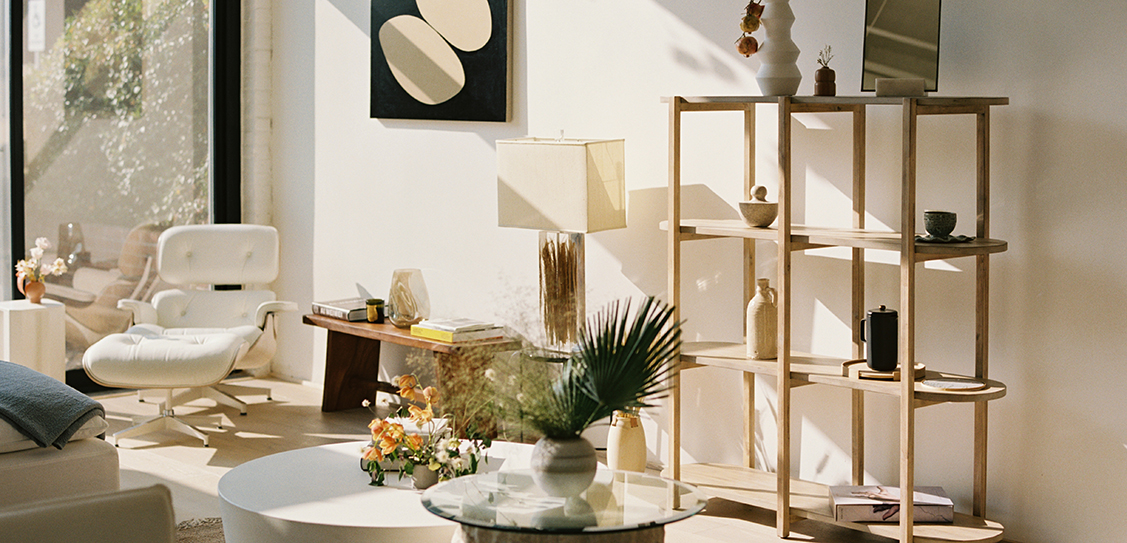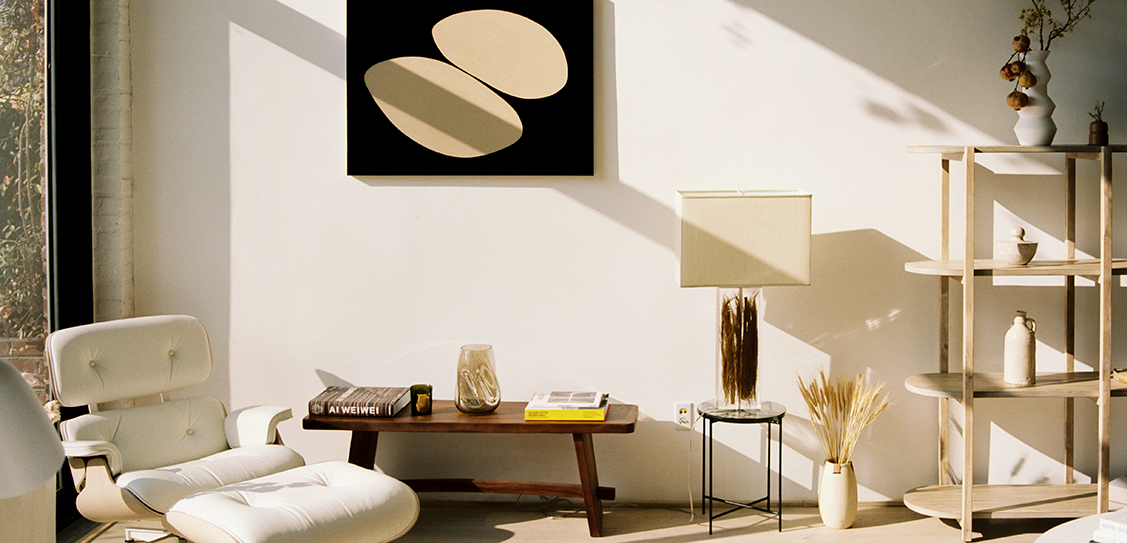Maximizing every inch of space, Only Way Is Up (OWIU) created additional quarters and distinct uses for each room. The result is an apartment that merges Asian design principles with a downtown Los Angeles industrial edge, to create a comfortable living environment that inspires thoughtful daily routine and encourages a mindful lifestyle.
The main design goal was to avoid a cluttered furniture scheme and create a homely environment for comfortable and practical everyday use. The firm's detail-oriented approach helped maintain the apartment's expansive feel, while also providing well-planned interventions that compartmentalise space and maximise usage.
As you enter the loft, the immediate size of the space is apparent and framed by the hanging Noguchi Akari pendant lights, which lead your eyes towards the concrete slab that sits on the kitchen bar and functions as the home's main dining table.
The ground floor living space frames the grandiose staircase which ascends to the upper open loft level of the apartment. The staircase's railing wraps up to seamlessly blend into the extended mezzanine and functions as a faceted guardrail. The staircase is assembled from 10 custom fabricated panels and features four angled interventions that break up the visual continuity. The guardrail's typology is a unique design element that strays from a typical straight line guardrail.
The Biscuit Loft's strongest physical aspect is its double volume height. The loft's upper mezzanine floor functions as a semi-private study/reading room that rests above the open kitchen and living area. It also serves as the entryway to the private master bedroom on the second floor. The upper mezzanine was extended by 130 sq ft with wooden pilotis to provide a more extended cover of the ground floor and section off the entrance to the private guest bedroom. The intervention fixes the problem of privacy in the apartment and creates a tranquil space for the master bedroom.
The guest bedroom design was inspired by the simple Japanese Ryokan, a traditional inn and guest experience established in the 17th century. The minimalist room is lined with tatami mats and will have a Japanese futon for when guests stay over the apartment. Its secondary use will function as a space for tea ceremonies and gatherings, as typical in a Ryokan, as well as a serene atmosphere for reading, creative brainstorming and resting.



.jpg)